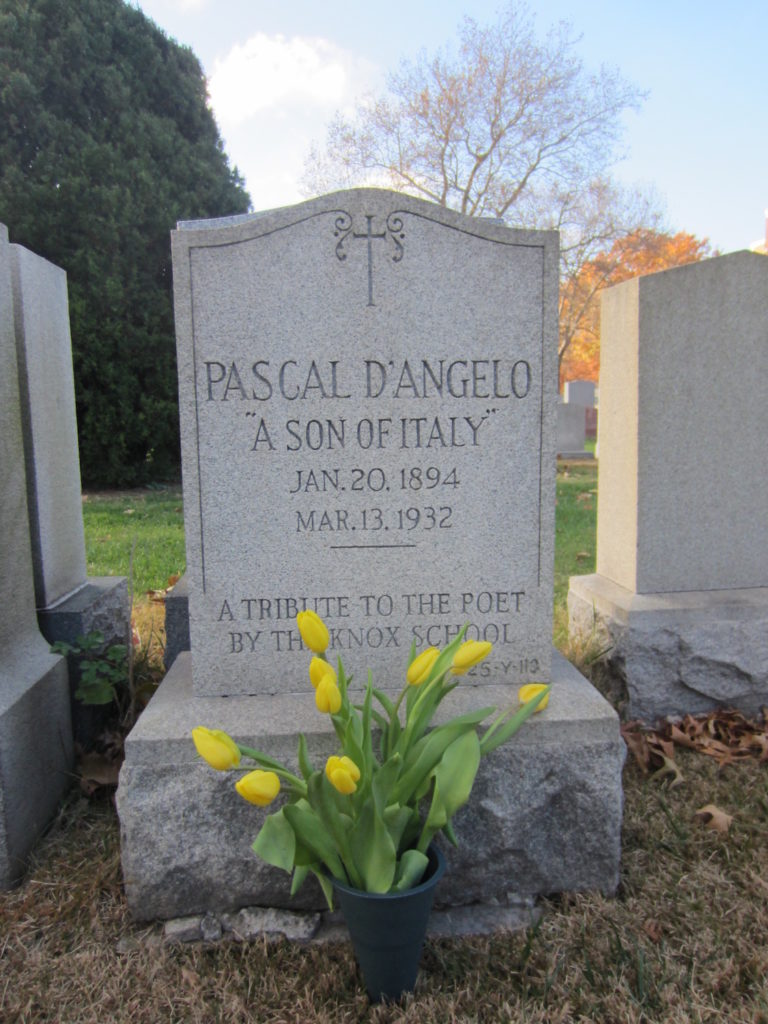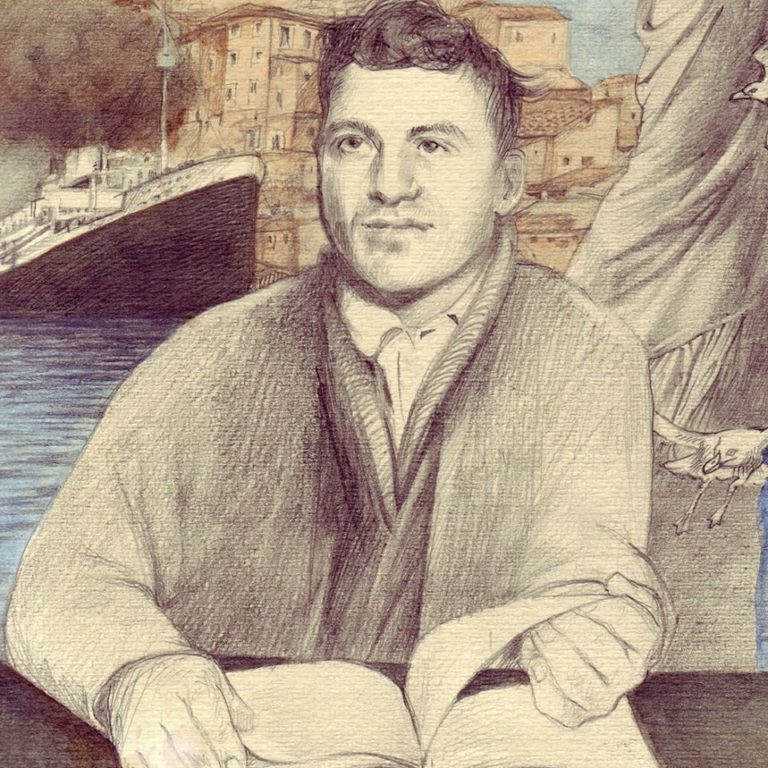by Federico Di Mattia
“Pick and shovel poet,” that’s what the press of the time called Pascal D’Angelo, the Abruzzese poet whom Van Doren, the editor of “The Nation” newspaper in New York, described as “one of those sons of Ovid whose fame still shines on ancient Sulmona.”
Born in Introdacqua in 1894, young Pasquale attended school intermittently and, at the age of 12, was forced to leave his studies to tend to the family’s small flock of sheep, their only resources. Severe financial hardship prompted Pasquale’s father, Angelo, to emigrate to the United States along with 49 other residents of Introdacqua, taking the sixteen-year-old Pasquale with him.
That journey to America was a toward economic and social redemption. Pascal experienced it with great optimism and enthusiasm, recounting his first time on a train, the voyage on the ship Celtic, and the wonder of the sea he had never seen before. Unfortunately, the reality that greeted them upon arrival was not what they had hoped for but rather a daily life marked by continuous deprivation, mistreatment, oppression, and underpaid labor. After five years, in 1915, Pascal’s father, tired and disheartened, decided to return to their homeland. Pascal, on the other hand, stayed with the desire and intention of making a fortune as a writer. “Somewhere in this country, I would find the light,” he wrote in the early 1920s under the New York sky. With great tenacity, Pascal tried every possible way to master the English language: he studied, read newspapers, frequented public libraries, bought a worn-out, third-hand dictionary, and committed himself to learning new words every day. He became exceptionally skilled and well-prepared and finally began to cultivate his great passion for poetry, all while working hard as a laborer on the railways. He started sending his writings to various newspapers without receiving a response. When, in 1922, the weekly magazine “The Nation” announced a poetry contest, Pascal wrote a heartfelt letter to the editor, Carl Van Doren, who was able to discern the extraordinary talent and innate sensitivity of the Abruzzese poet from those words. In a short time, his poems were published in the most popular American magazines and newspapers. He participated in public presentations, captivating his listeners with fascinating speeches, becoming famous throughout the nation.
In 1924, riding the wave of such notoriety, the publisher Macmillan published his autobiography, “Son of Italy.” The book recounted with fervor and emotion his childhood in Abruzzo, the sorrow of leaving his never-seen-again mother, the conditions of poverty that forced people to leave, the long and arduous journey, the injustices experienced upon arrival, but also the determination and passion with which our fellow countryman pursued his American dream. It was an extraordinary success but also a dream cut short. Only a few years later, in 1932, Pascal died of intestinal occlusion.
Today, he rests in the cemetery of Saint John in Brooklyn, New York. The “pick and shovel poet” has been honored with the Regional Museum of the Emigrant “Pascal D’Angelo,” located inside the Trasmondi palace, a 16th-century building in the historic center of Introdacqua (Aq). The museum takes inspiration from the young writer’s experiences to delve into the phenomenon that, more than any other, changed the fate of our country: the Great Emigration of the last two centuries.

Pascal D’Angelo deserves all our respect and admiration for the tenacity and great strength of will he employed to lift himself from a life of extreme poverty, becoming one of the greatest literary phenomena overseas, still loved and remembered today. All the bitterness is encapsulated in a sentence from one of his writings: “In Us, born for Divine love, we will die from Human hatred.” It’s the painful testimony of a broken American dream, unfulfilled, and of all the unachieved dreams of the emigrants of that time and our time, victims of mechanisms too large, subservient to unscrupulous economies, and devoid of any value and respect for the human being.
Special thanks to Massimo Tardio | Fondazione Pascal D’Angelo – D’Angelo’s House Introdacqua for their valuable collaboration.
For further information:
https://www.facebook.com/PASCAL-DANGELO-poeta-da-Introdacqua-a-New-York-229405354872/
http://www.museopascaldangelo.it
https://www.facebook.com/pascaldangelo.mostra/
